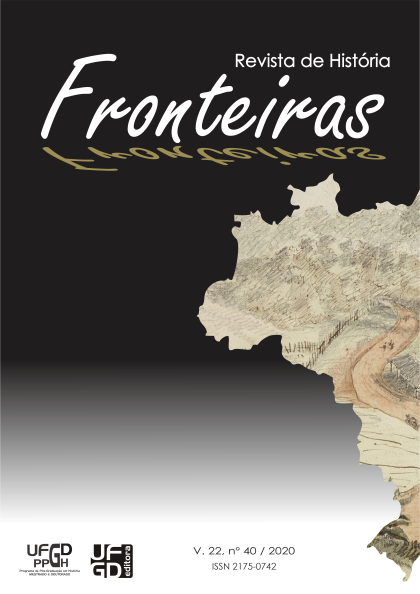Argentina’s dictatorship in focus: the issue of the repressors’ daughters and sons by Teresa Basile
DOI:
https://doi.org/10.30612/frh.v22i40.13270Keywords:
Repressors’ daughters and sons. Memory. Literature. Angertine dictatorship.Abstract
This interview was born from an activity to be developed during the course History of the Present Time: theory and historiography, taught in the Postgraduate Program in History of the State University of Santa Catarina. Our goal is to introduce the research of Professor Teresa Basile, who studies about the second affected generation by the Argentina’s dictatorship in the 1970’s, in other words, the Argentine repressors’ children who condemn the crimes practiced by their parents. Basile explores the theme approaching the liasons between literature, violence, politics and memory cited in the Latin America researches so far. Thus, it comes to questions that drive us to realize the violence practiced by the State in a recent past, putting us at the center of the discussion about the maintenance of violence in the present and the stuggles to try to stop it in this day and age.Downloads
Download data is not yet available.
Downloads
Published
2020-12-18
How to Cite
Wassmansdorf, M. L. (2020). Argentina’s dictatorship in focus: the issue of the repressors’ daughters and sons by Teresa Basile. Fronteiras, 22(40), 202–220. https://doi.org/10.30612/frh.v22i40.13270
Issue
Section
ENTREVISTA
License
Autores que publicam nesta revista concordam com os seguintes termos:
- Autoras e autores mantém os direitos autorais e concedem à revista o direito de primeira publicação, com o trabalho simultaneamente licenciado sob a Creative Commons Atribuição-NãoComercial-CompartilhaIgual 3.0 Brasil, permitindo o compartilhamento do trabalho com reconhecimento da autoria do trabalho e publicação inicial nesta revista.
- Autoras e autores têm autorização para assumir contratos adicionais separadamente, para distribuição não-exclusiva da versão do trabalho publicada nesta revista (ex.: publicar em repositório institucional ou como capítulo de livro), com reconhecimento de autoria e publicação inicial nesta revista.
- Autoras e autores têm permissão e são estimulados a publicar e distribuir seu trabalho online, como em repositórios institucionais ou em páginas pessoais, a qualquer ponto antes ou durante o processo editorial, já que isso pode gerar alterações produtivas, bem como aumentar o impacto e a citação do trabalho publicado (Veja O Efeito do Acesso Livre).


